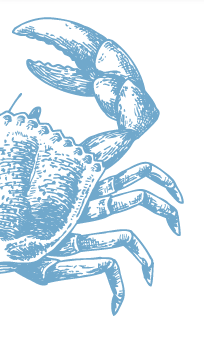
Our Oceans are at Risk
The oceans are Earth’s thermostat, regulating climate, absorbing carbon dioxide and producing over half the oxygen we breathe. Covering ¾ of Earth’s surface, we used to think of the oceans as an endless resource. Now we are just beginning to realize like all resources, our oceans have their limits and they’re being sorely tested. Many agree the most immediate change we can make is to stop overfishing, and change how we fish to create less habitat destruction and reduce by-catch.
“Overfishing is the great environmental disaster that people haven’t heard about,” said George Duffield, Producer of the award-winning movie End of the Line.
If people don’t start realizing the damage we are doing to our oceans, seafood as we know it today will be folklore for our children. But it doesn’t have to be that way. The oceans are a renewable resource and can regenerate themselves and fish stocks can make a comeback, if we make a change. We should stop relying on industrial scale fishing and resort to more sustainable practices conducted by local community based fishermen. We need to care for our oceans as we care for the wild places on land and when we extract natural resources from the ocean we need to do it in an a way that preserves the long-term viability of fish populations and the marine ecosystem they depend on.
Blue Horizon Wild wants to help. We’ve adopted a Responsible Sourcing Policy that’s as simple as possible but also as rigorous as we can make it.
Blue Horizon Wild only sources responsibly-caught wild fish certified by the Marine Stewardship Council and/or defined as sustainable by Monterey Bay Aquarium’s Seafood Watch program or equivalent programs like Blue Ocean Institute and SeaChoice Canada. When possible we try to source from smaller, community-based fisheries, and we’ll always tell you where our seafood comes from.
Blue Horizon Wild never allows
- Fish on the “Avoid” list by Seafood Watch Program of Monterey Bay Aquarium.
- Harmful fishing techniques that cause excessive by-catch and destruction to the ocean’s ecosystem such as long-lines, and dredging.
- Fisheries that operate IUU (Illegal, Unreported and Unregulated).
- Large-scale, open ocean, conventionally farmed fish and aquaculture farms that rely on fish food, antibiotics and synthetic hormones to swiftly grow their fish, while often polluting natural marine habitat.
- Corporate Blindness to the facts regarding our threatened ocean habitat and the fish meant to live there.
Our Fisheries
Q&A on Sustainability
You can show your support for sustainable seafood and for helping rebuild our Ocean’s ecosystem, every time you buy our seafood.
1. Journal of Science-11/3/2006
